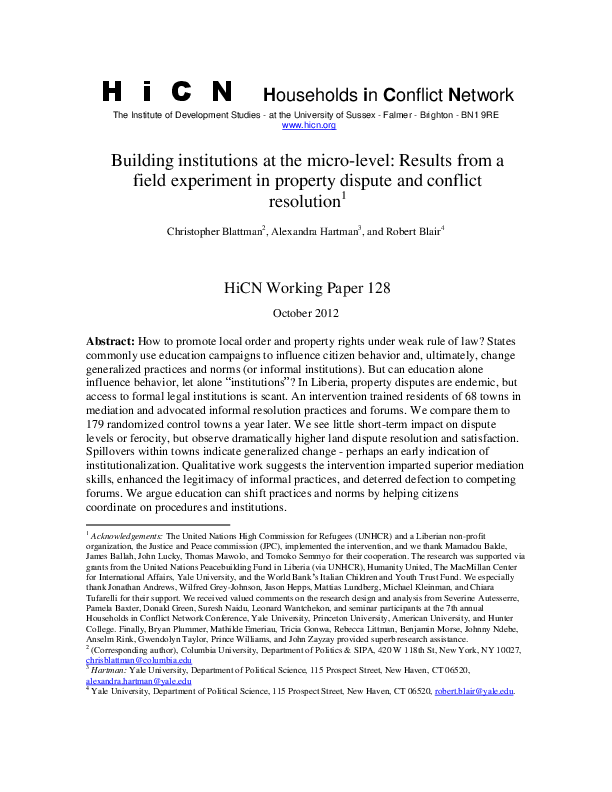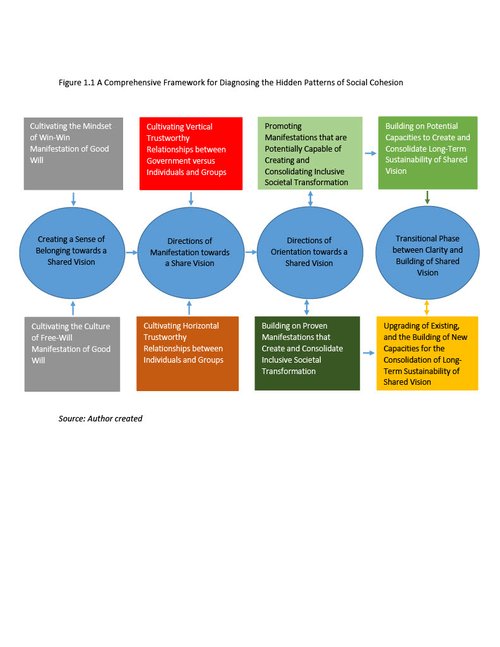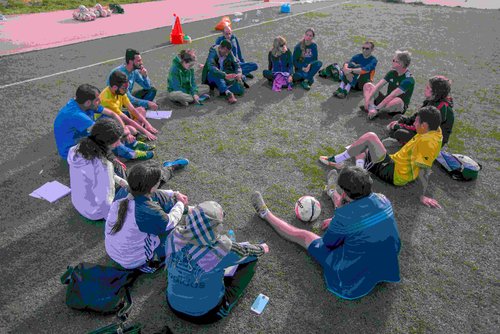Building institutions at the micro-level: Results from a field experiment in property dispute and conflict resolution
Key facts
Orientation towards the common good
Intergroup relations
Summary
How to promote local order and property rights under weak rule of law? States commonly use education campaigns to influence citizen behavior and, ultimately, change generalized practices and norms (or informal institutions). But can education alone influence behavior, let alone “institutions”? In Liberia, property disputes are endemic, but access to formal legal institutions is scant. An intervention trained residents of 68 towns in mediation and advocated informal resolution practices and forums. We compare them to 179 randomized control towns a year later. We see little short-term impact on dispute levels or ferocity, but observe dramatically higher land dispute resolution and satisfaction. Spillovers within towns indicate generalized change - perhaps an early indication of institutionalization. Qualitative work suggests the intervention imparted superior mediation skills, enhanced the legitimacy of informal practices, and deterred defection to competing forums. We argue education can shift practices and norms by helping citizens coordinate on procedures and institutions.




